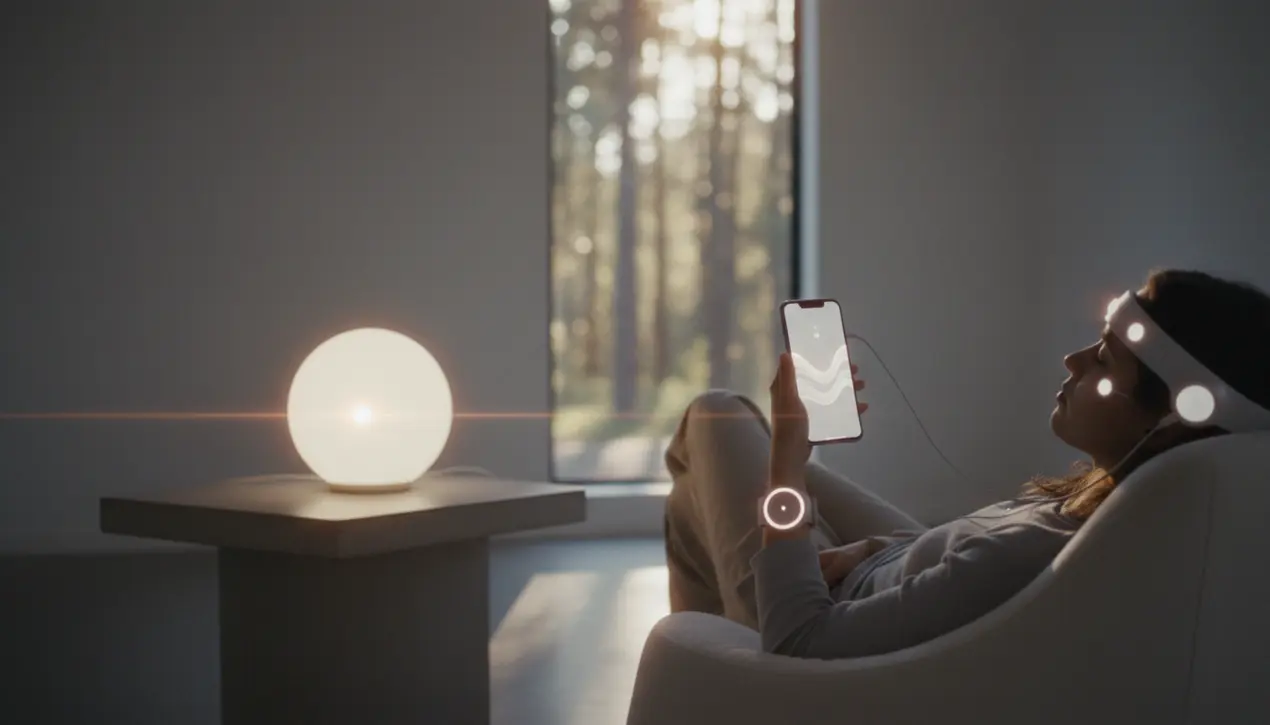
Scienceneuroscience
Engineering Ecstasy: Can Technology Tame the Psychedelic Experience?
MI
Michael Ross
4 hours ago7 min read
The ancient human drive to explore altered states of consciousness is converging with cutting-edge technology, sparking a revolution that aims not just to observe but to actively curate the psychedelic journey. The pivotal inquiry—can technology eliminate the dreaded 'bad trip'—lies at the center of a complex ethical debate concerning safety, autonomy, and the intrinsic value of these unpredictable voyages.Proponents point to a new wave of digital guardians: wearable devices that track physiological markers like heart rate and skin conductance, syncing with applications that can deploy soothing audio guidance or alert a human supervisor when a user shows signs of distress. This represents a kind of psychological first aid, a technological embodiment of the principle to do no harm.Ventures are pushing further, developing closed-loop systems that use gentle neurostimulation or sound to theoretically steer brain activity from chaotic patterns linked to negative experiences toward more serene, coherent states—effectively creating real-time mental navigation for a mind under the influence. The promise is immense, potentially democratizing the therapeutic use of psilocybin and MDMA by enhancing safety and reducing the reliance on costly, round-the-clock human guides, thereby expanding treatment for conditions like severe depression and PTSD.However, this drive to engineer the experience raises profound philosophical dilemmas. Are we stripping the journey of its essential character, where profound insights often emerge from confronting inner turmoil? Does relying on a digital crutch during our most vulnerable moments erode personal growth and the therapeutic power of working through difficult material? The regulatory environment is utterly unprepared; agencies like the FDA have no precedent for certifying a 'digital trip-sitter,' and the liability questions are daunting.The privacy concerns are equally staggering, as these systems generate permanent records of an individual's most intimate psychological terrain. As we navigate this new frontier, the discussion must transcend technical capability. We are compelled to ask not merely if we can construct these systems, but if we should, and what essential, unquantifiable aspects of the human experience we might sacrifice in our quest to banish the darkness.
#lead focus news
#psychedelics
#technology
#mental health
#drug trends
#Uncanny Valley
#bad trips
#neuropharmacology
Stay Informed. Act Smarter.
Get weekly highlights, major headlines, and expert insights — then put your knowledge to work in our live prediction markets.
Related News
Comments
Loading comments...
© 2025 Outpoll Service LTD. All rights reserved.